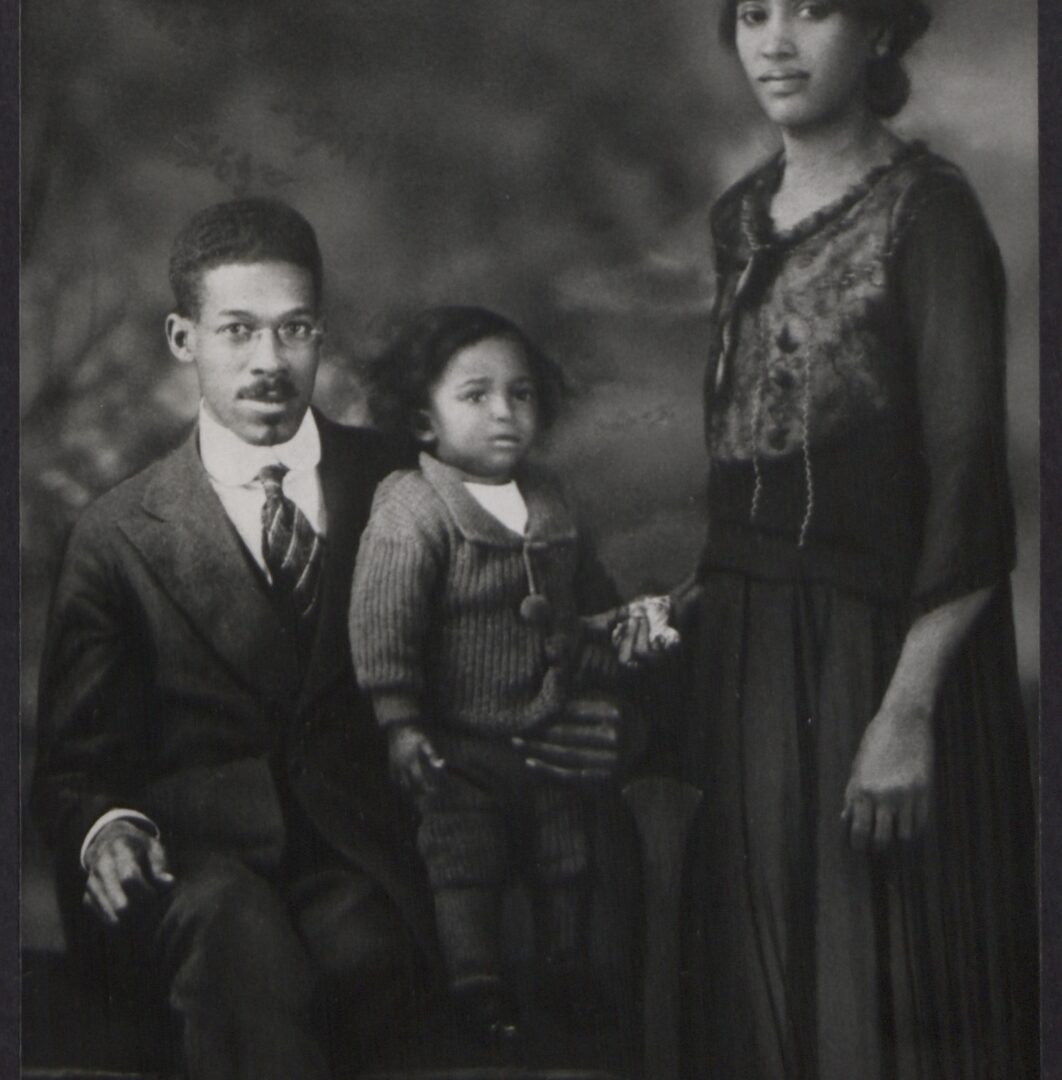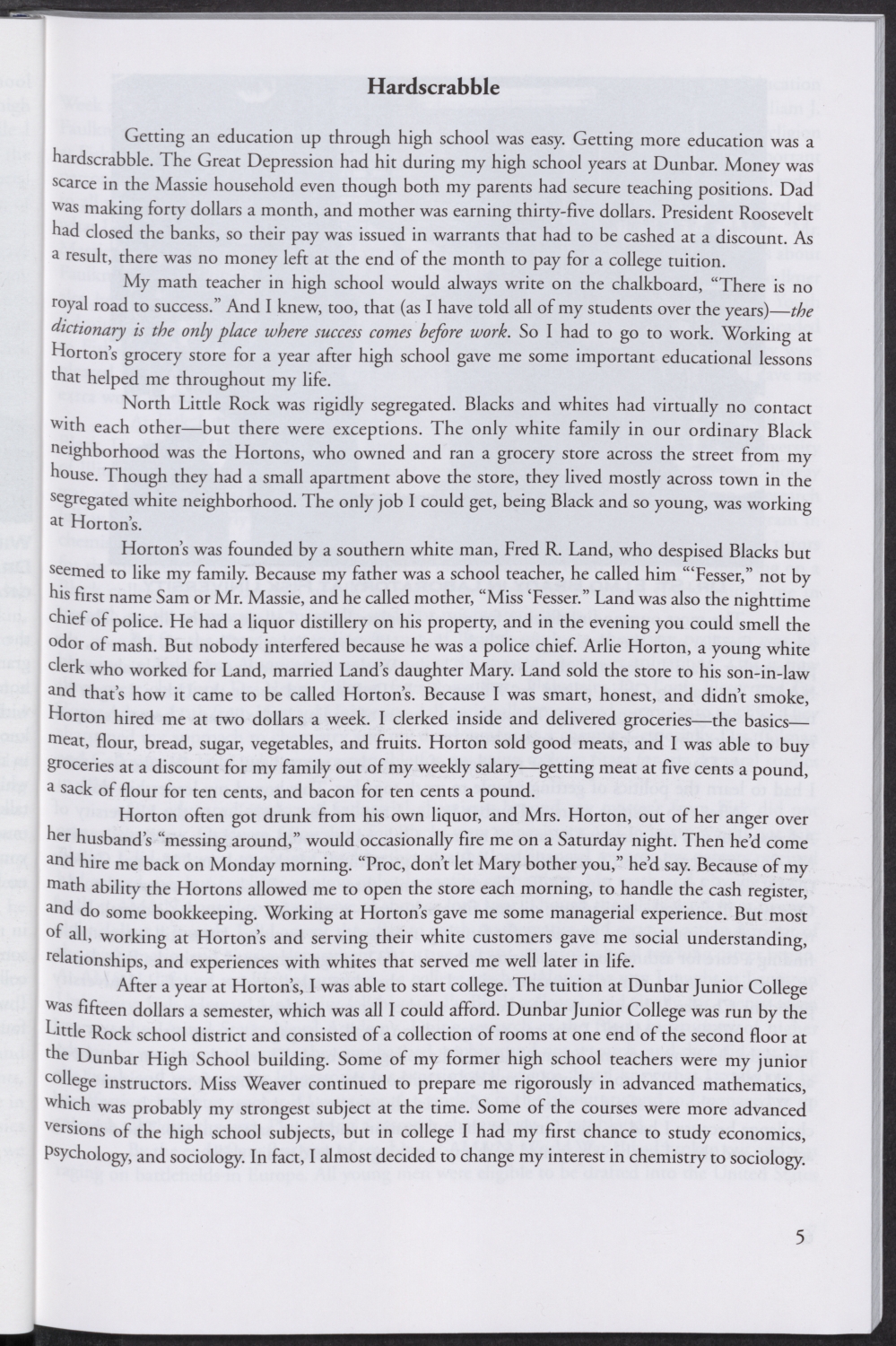Race and the Great Depression
Introduction
Samuel Proctor Massie Jr. (1919-2005) was an African American chemist who worked on the Manhattan Project, a research initiative that led to the creation of the first nuclear weapons during World War II. He also became the first African American to teach at the United States Naval Academy. A native of Little Rock, Arkansas, he was a gifted student and graduated from high school at the age of thirteen.
In this activity, you will read an excerpt from Massie’s autobiography, in which he describes his experience in urban Arkansas during the Great Depression. Unemployment during the Great Depression was very high for all Americans (around 25-30%) but it was particularly high for African Americans (as high as 50%). The Massie family was fortunate because both Mr. and Mrs. Massie had jobs. Yet, the family was too poor to send Samuel to college. Read what Samuel did when he realized that.
Activity Questions
- Why was Massie not able to go to college right after high school?
- What was Massie’s experience like working at a grocery store? What do we learn about this grocery store and its owner from Massie’s story?
- How would you characterize Massie’s relationship with Mr. Horton?
- What do we learn about racial relations in Arkansas during the Great Depression from this document?
- What do we learn about the African American experience during the Great Depression from this document? Based on what you know about the Great Depression, was Massie’s experience unique or typical?
Primary Sources
To learn more about the primary sources featured in the activities above, click the following links:
Arkansas Social Studies Standards
Arkansas History, Grades 7 – 8
- Strand: History
- Content Standard 7 – Students will examine the impact of historical events and people on the development of Arkansas
- H.7.AH.7-8.1: Evaluate ways that historical events in Arkansas were shaped by circumstances in time and place
- H.7.AH.7-8.7: Examine social, economic, and political effects of the Great Depression and the New Deal on various regions and segments of the population in Arkansas
Arkansas History, Grades 9 – 12
- Strand: Era 4: Early 20th Century 1901-1940
- Content Standard 4: Students will analyze factors that influenced the perspectives of Arkansans in the early 20th century.
- Era4.4.AH.9-12.5 Analyze social, economic, and political effects of the Great Depression on various regions and segments of the population in Arkansas
More Information
Downloadable Guides and Handouts
We encourage K-12 educators to use History Alive: Virtually! in a way that will best match their classroom needs. The “Exercise” handout includes a complete exercise as featured on this website, the “Primary Sources” handout includes only primary sources used in the exercise, and the “Questions” handout includes analytical questions from the exercise but is editable and can be easily changed to best match students’ needs.
Race and the Great Depression – Exercises


